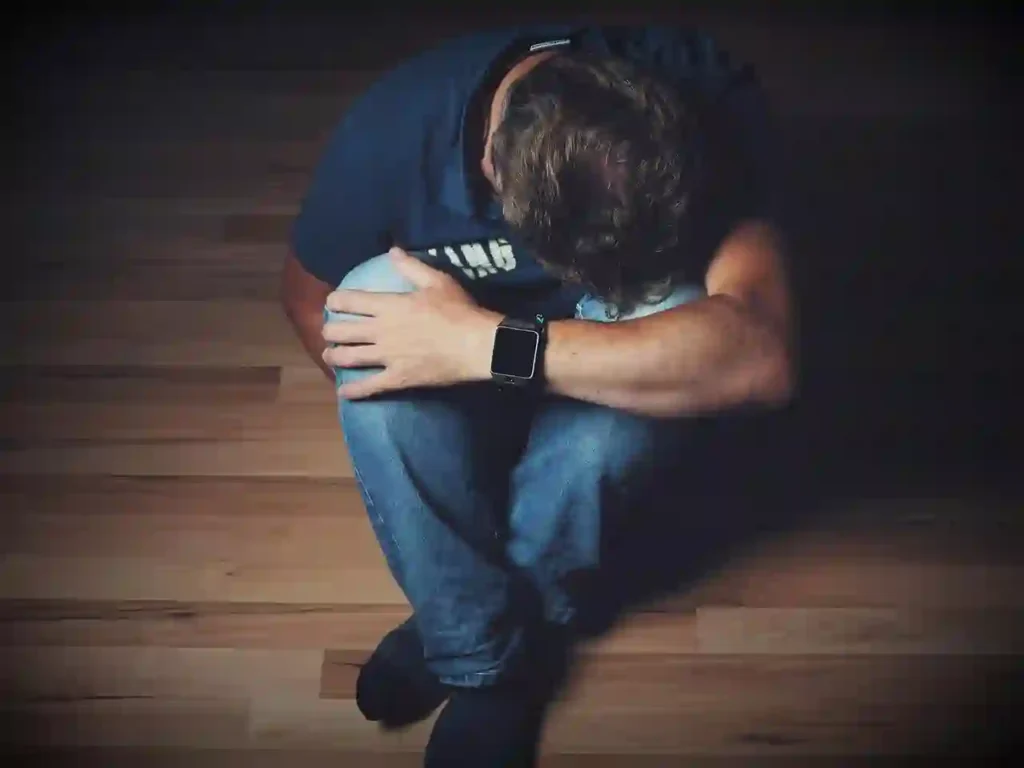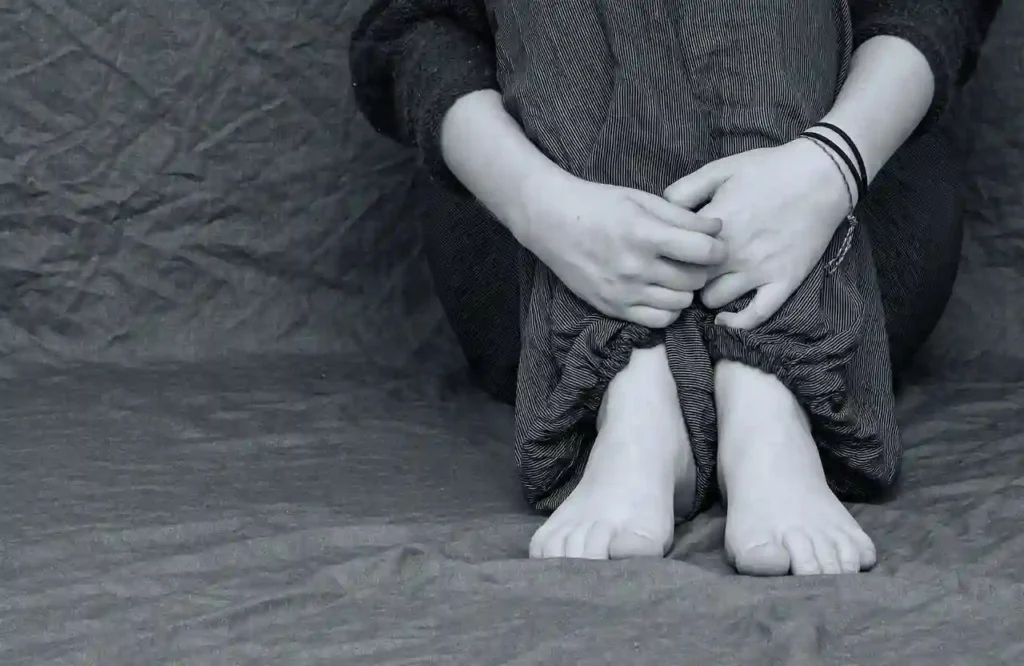Introduction

Depression refers not to sadness but a severe mental issue that may profoundly influence how the person is able to cope with everyday life. Its impact on sleep and appetite, motivation and relationships, can be life-changing, and intricate. Now we will see How Depression Affects Daily Life?
Table of Contents
How Depression Impacts Your Emotional Well-Being
Depression influences emotional health significantly as it makes a person experience constant sadness, widespread hopelessness, and insensibility. It can diminish capacity to find joy or bond with others on the emotional level. The symptoms may result in low self-esteem and increased anxiety, which makes mood worse, forming such a cycle. Emotional wellness is also a condition that needs to be handled with assistance by the family, therapy, and even drugs, as a way of regaining stability and overall quality of life.
Effects of Depression on Physical Health
It is not only the mind that is approaching depression, but also the physical fitness. The manifestations may involve exhaustion, pain (chronic), headaches, and intestinal problems. There is a risk that depression compromises the immune system and exposes someone to disease. It may also upset the feelings of appetite resulting to changes in body weight. Management and treatment of depression should be recognized so as to curb these physical impacts and lead towards complete health.
How Depression Disrupts Sleep Patterns
Insomnia, early getting up or sleeping in are some of the major sleep problems that are attributed to depression. Insufficient sleep exacerbates the level of fatigue and cognitive performance and is a vicious cycle that exacerbates the symptoms of depression. The variance in sleeping patterns has the capability of affecting the memory, mood, and day-to-day activities. Therapy in treating depression can incorporate work on the effects of sleep hygiene and can consist of using therapy or drugs to regain regular habitual sleeping patterns that are not at all difficult.
Impact of Depression on Work and Productivity
It is possible to note that depression may significantly deteriorate work performance and productivity by decreasing the ability to concentrate, make decisions, be motivated. Some persons might not meet deadlines, concentrate, or be able to participate in the activities with full concentration. There is a rise in absenteeism and presenteeism (working when ill) and its consequences on career development and job satisfaction. To preserve a healthy work environment and have a healthy workplace, it is necessary to address the mental health of employees in the workplace through support and accommodations as required by employees and employers.
How Depression Affects Relationships and Social Life
The effect of depression may be the alienation and emotional distance with friends and loved ones, which result in feelings of being alone. It can bring about misunderstandings as a result of irritability or communication failure. Once enjoyed activities in social life may be too demanding or burdensome. The strain that goes along with this, however, can test the best of relationships, and it is on this day when you can put a stop to this with awareness, open communication, and support, and continue a fluid stream in the relationships despite depression and its effects.
Daily Decision-Making and Motivation Challenges
Depression can hamper lack of motivation and poor decision making and this makes even the simplest of daily activity feel like a burden. This may result in procrastination, frustrations and powerlessness. Inability to focus or lack of concentration makes it difficult to take steps in personal and professional life. When these problems are appreciated, the process of coping with them and finding some help to take the situation under control will be easier.
Coping Mechanisms People Often Use
Individuals living with depression may resort to some unhealthy behaviors such as seclusion, drugs, or evasion. The other measures that other people can employ are positive measures like exercise, mindfulness, social support, or creative releases. Good coping mechanisms are necessary in order to cope with symptoms and improve well-being. Depression can also be address through therapy and support groups that can help one find productive methods of responding to the condition.
When to Seek Professional Help
Professional assistance is also considered valuable when the symptoms of the depression do not disappear, as well as when they aggravate or when everyday activity is affected. Such symptoms are suicidal feelings, failure to undertake routine duties, or extreme emotional disturbance. Psychological practitioners offer diagnosis, treatment, and drugs that are dependent on the needs. Use of early intervention is effective to minimise the risk of recovery and eliminate the chances of long-term complications.
Tips for Managing Depression in Daily Life
Depression is controlled with various healthy rituals: adhering to a regimen, physical exercise, mindfulness, nutritious eating, and maintaining social interaction. In order to become more motivated, it is possible to establish some small goals that can be reached. It is crucial to find help in people who are close and paid experts. The main points to overcome the challenges and enhance the quality of life despite the depression are consistency and patience.
1. What Is Depression and How Is It Diagnosed?
Depression is a mental health disorder characterized by unending sorrow, despair and lack of interest. It can be established through its symptoms, time, and level of functioning impairment, often with the help of clinical interviews and standardized criteria, the DSM-5 among them.
Medical workers identify depression after reasoning through combinations of emotional, cognitive, and physical conditions carried over two weeks. Some of the common symptoms are the loss of interest in activities, fatigue, guilt, and suchlike. Comparison to tools and interviews are standardized and exclude other conditions to evaluate the severity of it. It must be diagnosed to be able to treat, whether by therapy, medication or lifestyle choice.
2. How Does Depression Impact Sleep Patterns and Energy Levels?
Depression interferes with the normal sleeping patterns; in most cases it leads to insomnia or sleeping too much. Low energy levels of fatigue are also normative and usually one finds it hard to remain focused or be forthcoming during the day.
Depressed individuals often complain of the inability to fall asleep, to sleep in, or wakeup too early. Other individuals can sleep too much yet they become fatigued. This sleeping disturbance influences the ability to think, mood, and body endurance. A vicious circle may be formed by the constant state of fatigue, which may lead to a deterioriation of a depressive condition and even the smallest tasks appear too challenging.
3. In What Ways Does Depression Affect Work or Academic Performance?
Building up depression decreases the ability to concentrate, decision making, and inspiration. Consequently, work production decreases, late deadlines are met and one can be unable to perform consistently at work or school.
Depression in work places or academics tends to cause lack of concentration, memory as well as lack of interest in work. Even the responsibilities which were possible to cope with before can become insurmountable. This tends to lead to absenteeism, low performance or a total giving up of the duties. Fear of failure or criticism of others might even enhance the anxiety and it will only add to the hardship that one goes through to accomplish the goals that are piled up on a daily basis as well as in professional or academic life.
4. How Does Depression Influence Eating Habits and Physical Health?
Depression induces over eating or loss of appetite. This usually results to gain or loss of weight as well as deterioration of the physical body such as digestive disorders and constant fatigue coupled with striking predisposition to ailments like diabetes and heart diseases.
Depression causes one to gain weight and engage in emotional eating since these people turn to food as a source of comfort. There is the possibility that others will lose appetite to eat and this leads to unhealthy weight loss. The changes affect metabolism, energy levels, and the general health. Depression can also pose a risk to long-term diseases especially when it is coupled with lack of self-care and physical activities. This physical degeneration can over the years even increase the emotional load, a cycle of mental and physical poor health.
5. Can Depression Change Your Relationships and Social Life?

Depression usually forces someone out into social life and lead to tensions in relationships. People can experience misunderstanding, getting irritable, or feeling not good enough, and they become isolated and are unable to be too close to others.
Depression is characterised by social disconnection. Victims can skip plans and detest conversations or appear alienated to their loved ones. This may make friends and loved ones misunderstand and lose their friendship. Depression also interferes with the ability to express emotion hence making it difficult to interact or sympathize. Consequently, there can be strained relationships and support systems collapse which is ironical as social connection is required the most during the recovery process.
6. How Does Depression Interfere with Motivation and Daily Tasks?
Depression deprives energy and even to realize simple duties such as showering, cooking, or cleaning is an exhaustive challenge. Even once enjoyable activities might seem useless or even too tiresome to begin or to finish.
Lack of motivation is one of the most disabling displays of gloominess. Mental and physical exhaustion cause simple tasks to seem like impossible tasks. This causes ignorance of personal hygiene, house chores, and self-protection, which further weakens the self-esteem and ensures a chaotic atmosphere. Thoughts of imprisonment to act and a desire to change become feelings of guilt and hopelessness that strengthens the circle of depression.
7. What Role Does Depression Play in Self-Care and Hygiene?
Depression also may lead to a drop in the level of personal hygiene and self-care. People might lack energy or not even want to do the simplest things such as take a shower, to brush the teeth or to groom themselves.
Depression may make a person overwhelmed even with activities of his/her everyday life. This involves self care habits, which used to be spontaneous. Reduced activity of the brain and emotional exhaustion turn into a situation when it is impossible or does not seem to be important to wash the clothes, to eat correctly, or to attend a medical appointment. It is not laziness-it is a symptom. It is important that such changes are recognized because they are the protrusion to deeper conflict and an indication that one requires assistance or intervention by an expert.
8. How Can Depression Lead to Isolation and Loneliness?
The depression condition usually makes people withdraw out of social life. Worthlessness emotions or fear of rejection may make them close themselves and become very lonely and lost within their system of help.
Depressed individuals will not attend friends, family, and social gatherings, including activities that they attended in the past. This seclusion is not a cabinet but it is caused by emotional burn-out and self-doubt. The disconnectedness may lead to greater depression over time and make the healing difficult. This isolation loop is something that the sufferers and people surrounding them need to understand because connecting again with the others might be an essential milestone in the healing process.
9. Does Depression Affect Decision-Making and Concentration?

Depression blurs the cognitive functions, and it is indeed difficult to then concentrate, decide or be focused on tasks. It is this cerebral haze that tends to impact our job, school and even our routine duties such as paying bills.
Mental depression symptoms like the impaired memory and loss of concentration are not always viewed as serious ones. Activities that involve planning or thinking are tiring or become useless. Straight-forward things, such as a choice of what to eat, can seem paralysing. The school or work performance becomes affected by such changes which makes one experience a feeling of guilt and stressfulness. The awareness of cognitive symptoms can give validation to the experience and help define more specific treatment and coping actions.
10. How Does Depression Impact Hobbies and Enjoyable Activities?
Depression destroys the pleasure in things that one once enjoyed, which is called anhedonia. There will be activities that could have been enjoyable before which may be without purpose, boring or weary, contributing to the sense of empty and unfulfillment.
Depression usually takes hallucinating pleasures away. You may become numb or lose interest even in your favorite activities even when you want to carry them out. This sort of lacking enjoyment can be very frustrating and confusing when people tell you, just do whatever makes you happy. It is important to realize that this affect flatness is part of the makeup of the depression not a problem within themselves, which leads them to the correct path of a cure.
11. Can Depression Increase the Risk of Substance Use or Abuse?
Yes, depressed people might resort to alcohol, drugs, or prescription abuse as the self-medication procedure. This defense mechanism may further damage psychological states and cause dependency or addiction at the long-term.
Individuals in unresolved depression can find some way out by using substances that provide temporary help. This, unfortunately, can lead to substance abuse to compound the list of emotional and physical health problems. Drugs can rob the person of the symptoms, but it eventually increases the depression, erodes a relationship and makes recovery harder. It is important to note this relationship as it is an important step in early intervention and the need to treat both mental health and addiction.
12. When Should You Seek Professional Help for Depression?
It is also possible to think of asking assistance in case the duration is beyond two weeks, it interferes with normal life or entails self-harm feelings. Early intervention gives a better possibility of curing and long-term recovery.
In case you find yourself feeling constantly sad, hopeless, disinterested or have a shift in your appetite and sleep, you should turn to a mental health specialist. Depression is not irreversible, in particular when it is timely detected. Failure to get treatment at the right time may aggravate the conditions and delays recovery. It may include therapy, medicines, or changes in our life style–and in many cases a combination thereof. It does not have to come until you reach a breaking point- asking help is not a sign of weakness.
Conclusion
Depression does not only mean being sad, it is a complicated mental health disease that creates a negative impact on almost every aspect of everyday life. Its effects can be complex, such as loss of sleep, altering the eating habits, to poor relationships and employment issues. Being able to see these signs and comprehend how depression can look is the initial step to seeking a supportive hand. Recovery is possible whether it is on the basis of therapy, medical treatment or change of lifestyle. When you or someone you know is experiencing trouble, do not hesitate to ask the professional assistance.